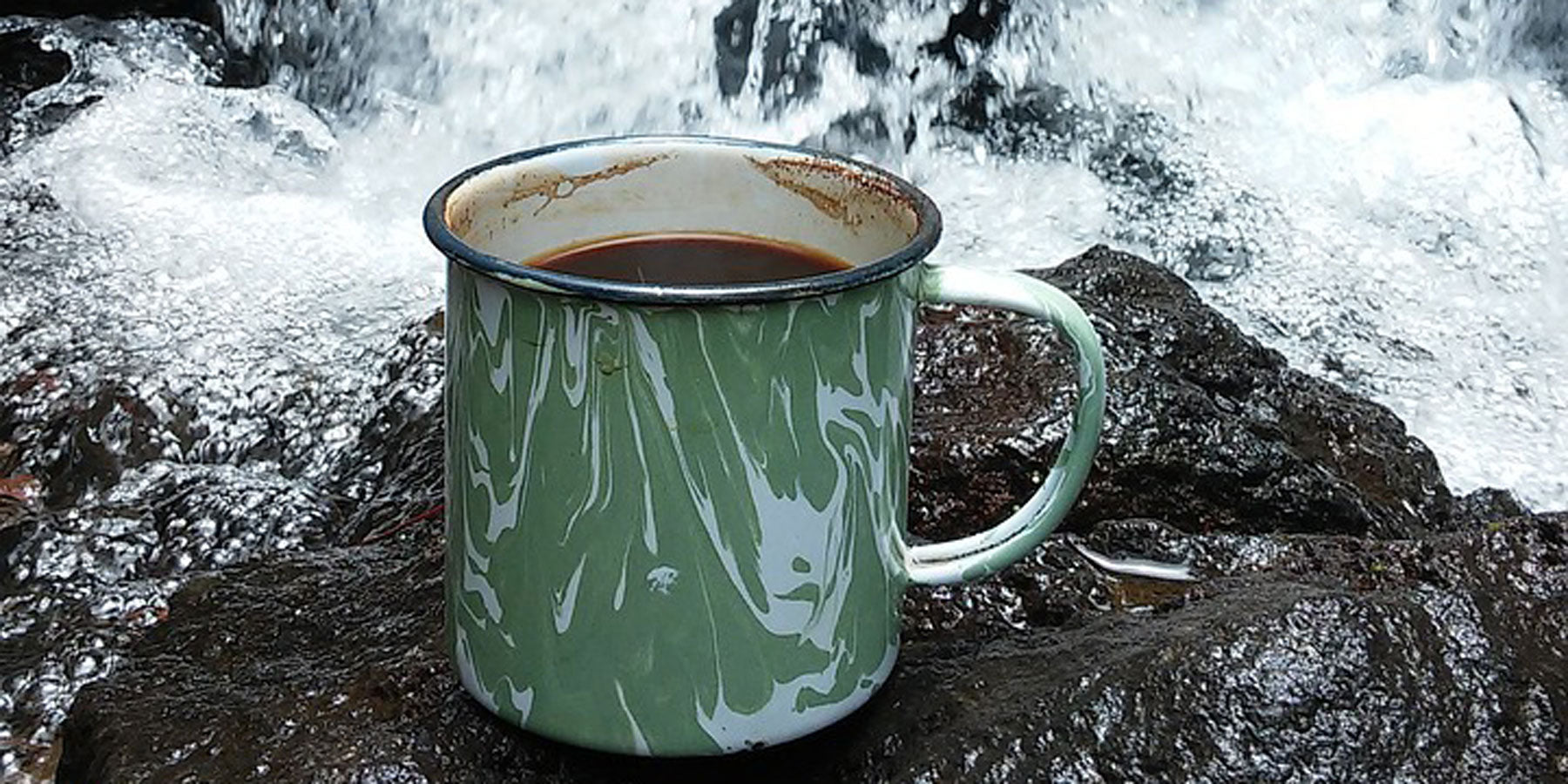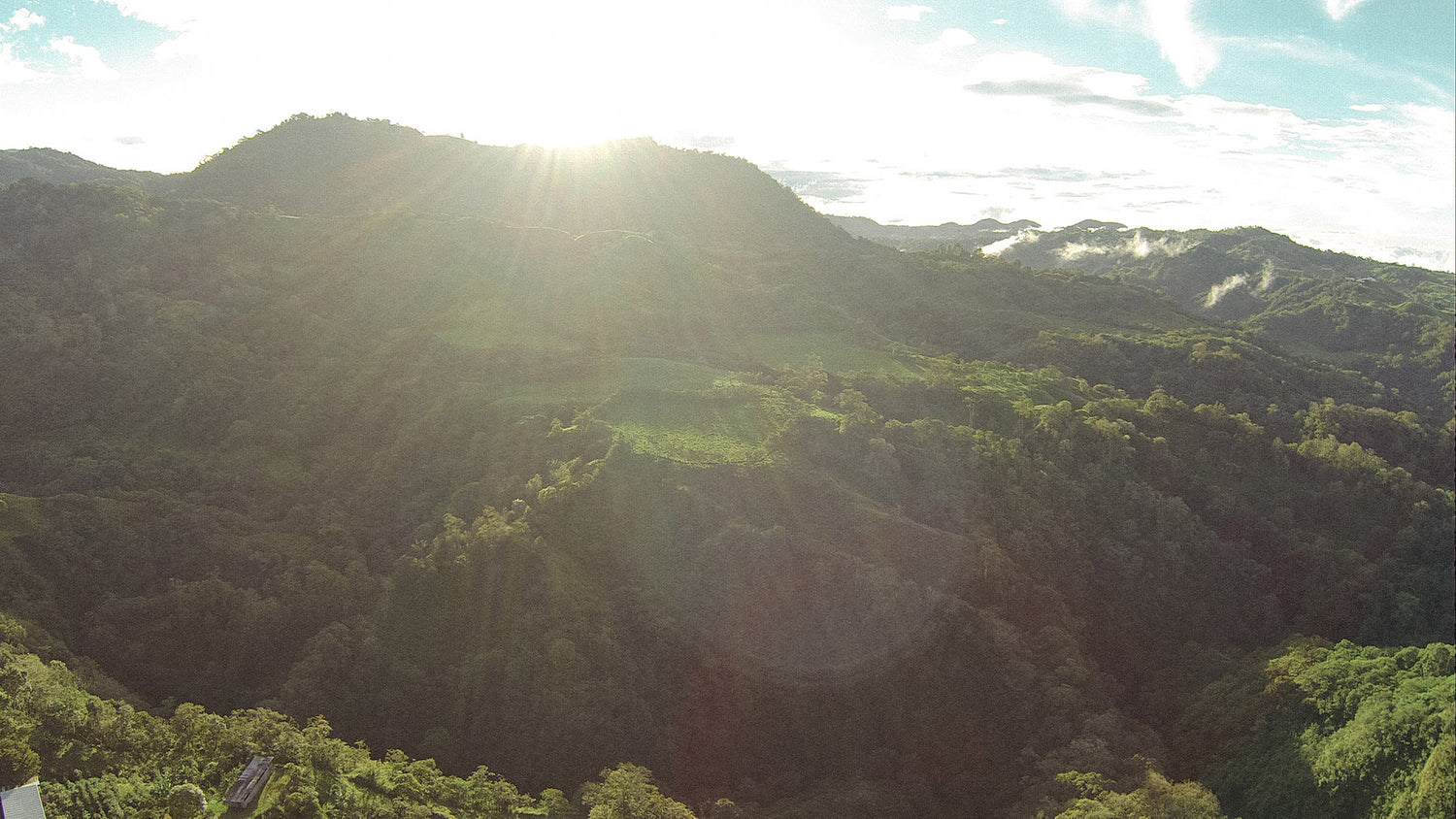One thing is clear - water is important...for us humans, for nature and of course for coffee. Depending on the preparation method, the brown stimulant consists of 98% water . What is in the water used to make your coffee and what is not is therefore fundamentally important for the taste . Because water is not just an ingredient, it also draws out all the good flavors from your coffee.
This is even more true for specialty coffee . Water has a huge influence on its particularly fine nuances. Bad or unsuitable water will not be able to bring out its full potential and can unfortunately even destroy the delicate subtleties completely.
Why is water so important for coffee?
A couple of facts
In its purest form, water is "just" H2O . But that is rarely the case. Unfortunately , pollutants, impurities or turbidity are often also present. To name just a few of the most important components for water quality: limescale, discoloration, the level of the pH value, taste and smell, microorganisms etc. If you want to know more, it's best to take a look at the World Health Organization 's website. There is a lot of information there about the guidelines for drinking water.
The soils and their minerals
Our earth always has the same amount of water available, but it is not just the state of matter that is constantly changing . The quality of the water is also constantly changing. It depends on many factors and humans obviously play a major role. Industry, agriculture and careless human actions are constantly leading to water contamination. But the amount of minerals contained in clean tap water is also of great importance for the preparation of coffee.



Water management at a glance
Let's take a look at the science of water. Because – as you probably know by now – not only is making coffee a science in itself, but so is the water used.
The Specialty Coffee Association (SCA), an organization that represents coffee professionals worldwide , has established the following water standards for the preparation of specialty coffee:
- Clean, fresh water, without any smell (e.g. chlorine)
- Clear color
- The total amount of dissolved particles should be a maximum of 150 mg/l or at least between 75 mg/l – 250 mg/l
- The water hardness should be between 50 – 175 ppm (parts per million) calcium carbonate (CaCO3)
- The alkalinity of the water should be close to 40 – 70 ppm CaCO3
- The pH value should ideally be around 7, but at least between 6 – 8
Water quality in coffee preparation
Phew, that sounds pretty scientific. But these SCA water standards should be seen as a recommendation rather than a law for coffee preparation.
Clean, clear, fresh water without the smell of chlorine is certainly a good start. The TDS (total dissolved solids) measurement is a way to determine the total amount of organic and non-organic components dissolved in the water. These are usually organic substances and minerals. TDS can therefore be an indicator of water quality.
Minerals such as magnesium, calcium and sodium play an important role in the extraction of coffee . If you get this wrong and don't balance the composition of these components correctly, the coffee can quickly taste too weak, flat, dull, sour, chalky or too strong. If the water is too hard, it also tends to cause rust. Unfortunately, this puts too much strain on the coffee equipment and can cause damage. Full alkalinity can help the water to better absorb changes in pH that would otherwise make it more acidic.
Coffee & water – an important combination!
During coffee extraction, we want the water to penetrate into the cells of the ground coffee and release as many delicious flavor components as possible.
Let's say we want to make filter coffee with the V60 . We use a recipe that has proven itself. We have taken care of all parameters except the water quality and they are well set. But in the end we still have coffee in the cup that tastes too weak and too sour. What happened?
The answer can be found in the water hardness and the pH value. If this is low, then the water is acidic. The pH value has a range of 0 - 14 , with a pH value of 7 meaning neutral . A higher pH value means that the water is basic. A pH value that is too high or too low can lead to corrosion and even the dissolution of material and ultimately pose a health risk.
But it is not only for your own health , but also for the "health" of your coffee equipment that it is important to take care of the water quality used to make coffee. As mentioned, hard water, which contains a lot of solid components, leads to rust and corrosion. Untreated limescale is a death sentence for any coffee machine. Parts such as the heater or pumps are particularly susceptible to damage from limescale deposits. Even if it is possible to remove these deposits with limescale removers, we recommend not letting it get that far and working with filtered water.

Water quality & coffee taste in the areas of specialty coffee
So much for the basics. But real coffee freaks are no longer satisfied with plain filtered water , but mix their own personal preparation water based on distilled water. Then they add just the right balance of minerals that is necessary for each type of coffee. Our friend Martin Wölfl from Wildkaffee Österreich is very experimental in this regard. He came to us for his water experiments and mixed various water mixtures . The amount of magnesium had a particularly positive effect on the sweetness of the coffee .
If that's too much work for you, you can also use pre-mixed mineral packets from Third Wave Water. You simply pour a packet into a gallon of distilled water and voila, you have the SCA standard. Unfortunately, Third Wave Water is based in the USA and the delivery process to Europe is therefore a bit lengthy.
But water experts like Brita also offer water tests and filter solutions . A simple way to improve the water quality at home (at least for hard water) is to buy a filter cartridge. If you replace it every month, bacteria cannot settle on the filters and substances like chlorine and limescale stay out of the water. If you want to know more about how Brita filters work, you can find out more here.


